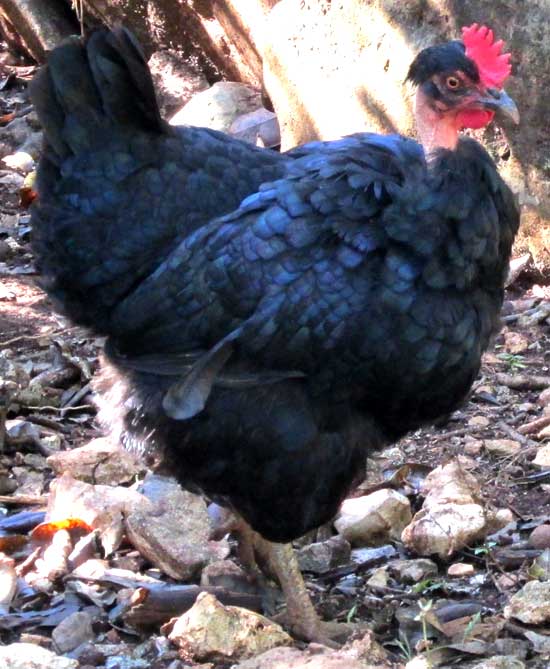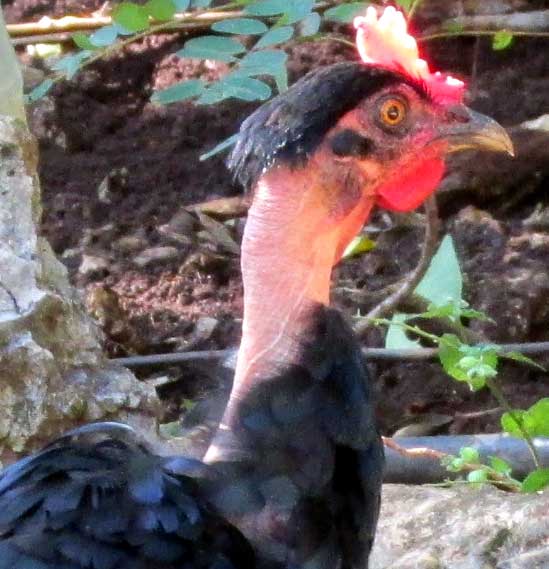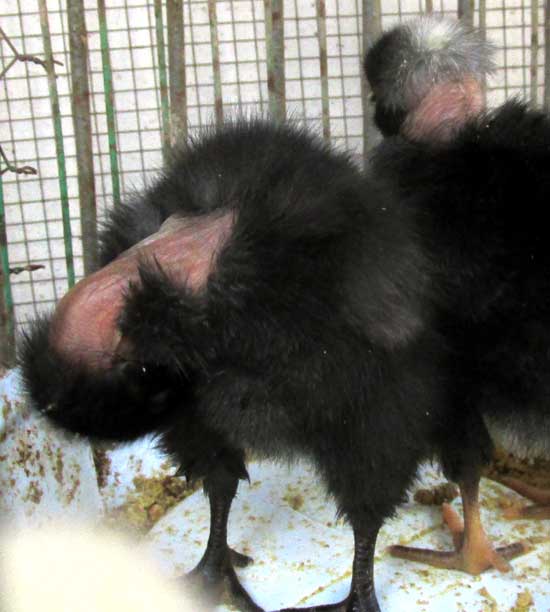Excerpts from Jim Conrad's
Naturalist Newsletter
from the December 18, 2016 Newsletter issued from Rancho Regenesis in the woods ±4kms west of Ek Balam Ruins; elevation ~40m (~130 ft), N20.876°, W88.170°; north-central Yucatán, MÉXICO
NAKED-NECK CHICKENS
Over 50 years ago when I began traveling in tropical America I was surprised to see many chickens running around people's yards with featherless necks. We have some here, one of them shown below:

A close-up of a fully extended featherless neck is shown below:

Back in my early days, since I'd never seen featherless-necked chickens, I figured that they must be a breed found only among indigenous people in the Americas. However, now I learn that the breed arose in northern Romania -- the Transylvanian region -- hundreds of years ago. At first people thought featherless-necked chickens were crosses between chickens and turkeys, and called them Turkens, as well as Transylvanian Naked Necks. But, now it's known that the naked necks resulted from a random genetic mutation that caused the overproduction of a feather-blocking molecule in the middle of the species' Chromosome 3.
The naked-neck trait is dominant, and is manifested when hybridization takes place between a pure Naked Neck and another breed. And often that's done because the naked-neck gene not only reduces heat stress in most chicken breeds -- the Naked-Neck breed has about half the feathers of other chickens -- but also causes the breast size to increase.
Nowadays Naked Necks are fairly common in Europe, very common in South America, but still rare in North America, despite their surprising ability to do well in the cold. They are inhabitants of the Rancho precisely because they thrive in the Yucatan's heat.
from the March 26, 2017 Newsletter issued from Rancho Regenesis near Ek Balam Ruins 20 kms north of Valladolid, Yucatán, MÉXICO
NAKED-NECK CHICKEN HATCHLINGS
I've always wondered what a recently hatched Naked-neck looks like, and now we have some, two of which are shown below:

These chicks are three or four days old. Interestingly, here our Muscovy Ducks are considered more dependable nesters than the hens who lay the eggs, so these chicks were incubated by a broody Muscovy. Our Muscovy page is at www.backyardnature.net/mexnat/muscovy.htm